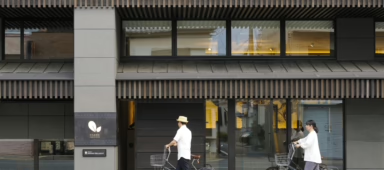Malaysia’s theatre doyenne Jo Kukathas takes a wider stage
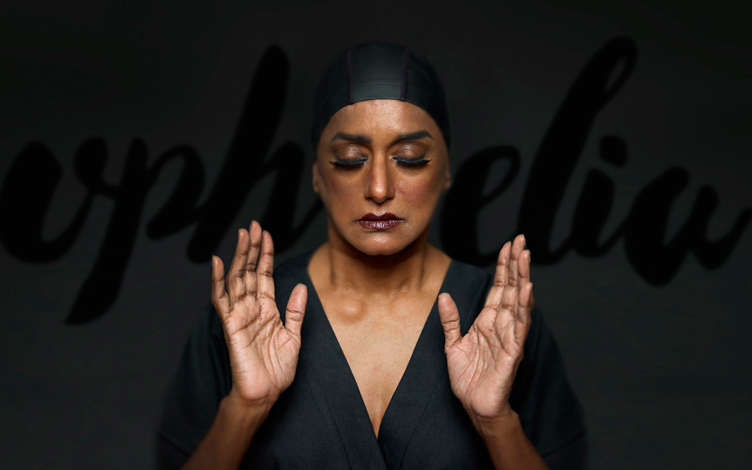
These days we don’t see Jo Kukathas as often as we used to in the Malaysian theatre scene. That’s because in the past few years, Jo has been a marquee name among Singapore’s theatre fans. With Nadirah, Cuckoo Birds, Parah/Pariah, Cooling-Off Day, Dreamplay: Asian Boys Vol 1, and Another Country, just to name a few, Jo’s work has taken her across the causeway in the last few years as opportunities, including funding, are more abundant there.
“I don’t have any projects here next year that are definite. This is the state of the financial situation,” she says, bluntly. Her last projects in Malaysia were in 2015 when she directed Another Country and The Instant Café Theatre’s D’State of D’Nation. For 2017, work will take Jo to Singapore, Melbourne and Berlin.
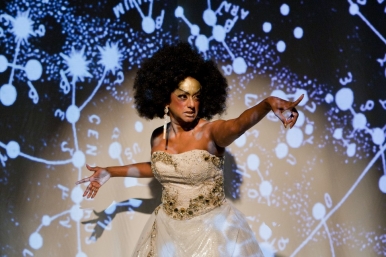
A director, actor, and storyteller, Jo has entertained and educated her audience through the years with her masterpieces. As one of three founders of the 27-year-old Instant Café Theatre, the group jolted and delighted the art scene with its political satire and biting comedy at a time when talk of politics or open criticism of the establishment were a no-no.
With her career spanning nearly three decades, Jo continues to take her audiences through tough topics such as politics, religion, race and gender. Next year, she hopes to get funding to restage one of her powerful plays Nadirah, which dwells on issues of religion and acceptance. Jo thinks that the play should be staged again despite the sensitivities involved. “I think this is one of the reason why we have to make art. This is what we need because, otherwise, we are constantly told not to understand other people. The purpose of art is to make us see ourselves,” she explains.
It is interesting to note that Jo is increasingly directing plays in the national language, Bahasa Malaysia. Having spent her formative years abroad, Jo never learnt the language formally. When she first returned to the country after years overseas, she only knew three words – bola (ball), kucing (cat) and sekolah (school). She picked up the language on the go and through theatre. “It is not a difficult language but it is a subtle language. I am glad to be able to direct more and more plays in Malay because I really enjoy it. Directing in a language which is not your first language, you somehow become more circumspect,” says Jo.
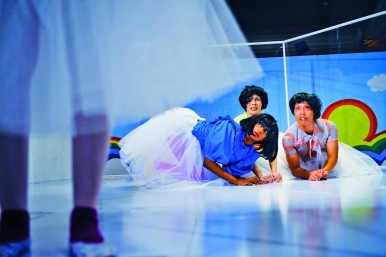
Not only does she speak the language fluently now, Jo no longer feels like a misfit in her own country, unlike when she first returned to Malaysia in the 1980s. “(Maybe it’s) because I met a lot of other misfits,” she laughed. “Maybe in a way, it is not a bad thing to be a misfit. I have always been wary of any kind of herd mentality. Of course, people look for their own tribe. The thing is you can’t have something in common with everybody. You will be a misfit in somebody’s world,” she says.
Living abroad as a child has also shaped her views towards life and people. Her late father K. Das was with the Malaysian Foreign Service and later became the bureau chief for the Far Eastern Economic Review magazine based in Hong Kong. From the age of seven, Jo and her five siblings left the country, only to come home during the holidays.
“Those things influence you. Living in different places, different cultural identities. You become adaptable. You become flexible. You don’t think that’s the only world there is. You don’t think you are the most important country in the world. If you only know your own country, you think your country is special. Of course it is special to you but other people’s country is also special to them. As a child living in different places … you accept that there are huge differences in people and you don’t judge them. You don’t question those things you observe about people with different cultural practices,” explains Jo, who then recounts her experience of discovering snow for the first time in Australia, and the lessons she received from her piano teacher on how to use the chopsticks while she was living in Hong Kong.
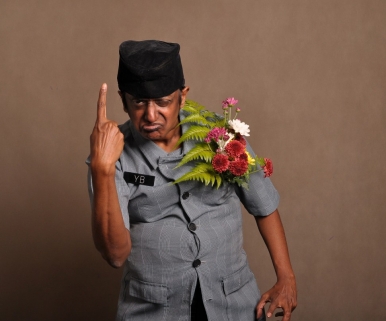
Jo cannot remember the last time she took a vacation. “I have been working in Singapore so much that when I come home, I just want to be at home,” she says as she gently strokes Kahoe, the orange tabby she shares a home with in the quiet suburb of Petaling Jaya. Travel, these days, is for work and visiting her diasporic family in different parts of the world. But Spain, Turkey, Laos, and Jaffna in Sri Lanka, where her family originates, are the few places she hopes to set foot on soon.
“Travel is important to gain knowledge. You see things that you don’t know. The Quran said go until China to seek knowledge. Travel is supposed to broaden your mind. Journey is I what see on the way. Pilgrimage is to find what I don’t know. I think it is human instinct to travel and to go places to discover more about one’s self and the world, which is very humbling,” says Jo.




